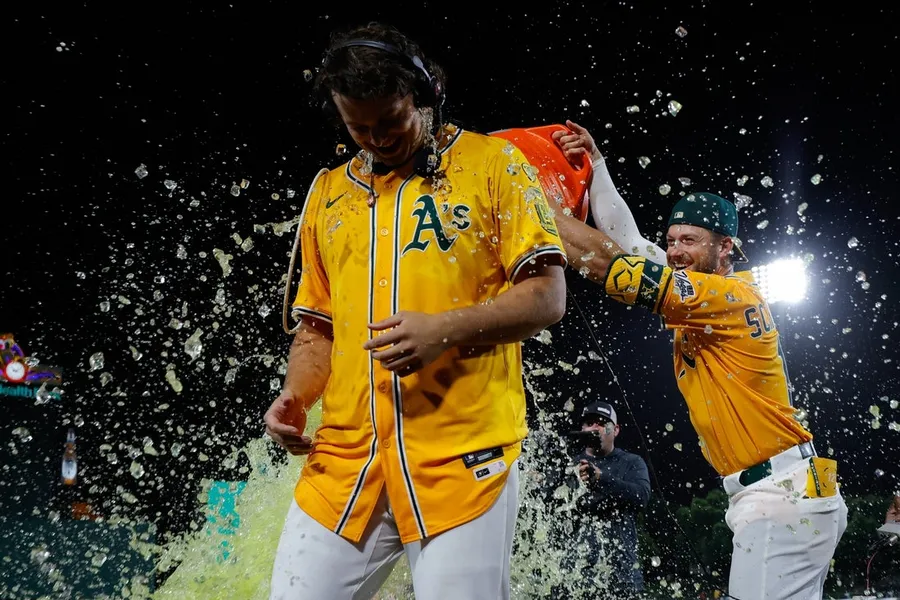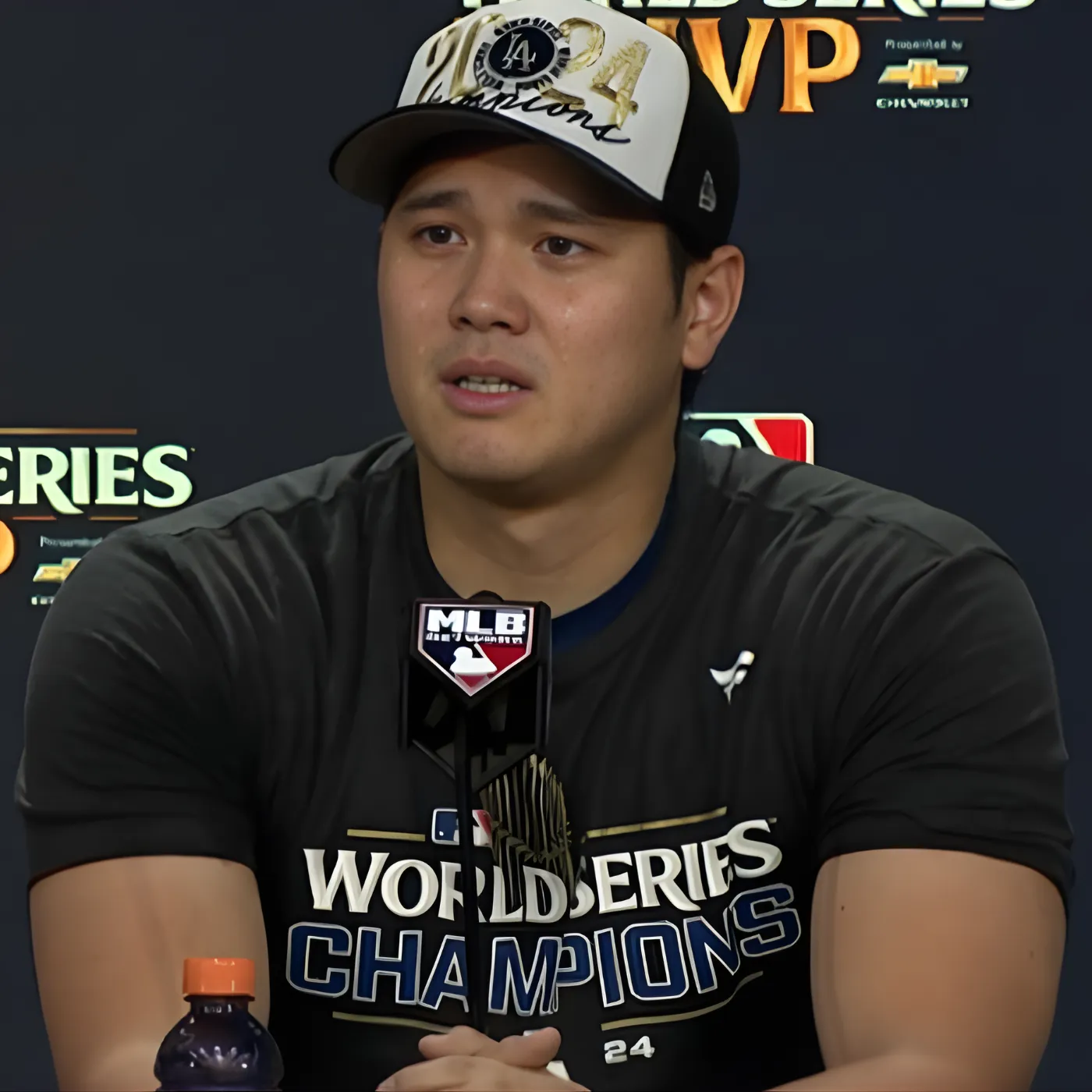

What Smart Strategy Did Nick Kurtz Use to Open the Scoring for His Team?
Baseball is a sport of fine margins. A single swing, a tactical adjustment at the plate, or even the decision to hold off on a pitch can tilt the entire momentum of a game. On September 6, 2025, at Angel Stadium, Nick Kurtz, the Oakland Athletics’ 22-year-old rookie, showcased exactly that kind of smart, decisive approach. While the final score was an overwhelming 17–4 victory for the Athletics over the Los Angeles Angels, the real story lies in how Kurtz set the tone and played a central role in igniting his team’s offense.
This wasn’t just a case of youthful exuberance. It was an exhibition of game intelligence, patience, and adaptability—the qualities that elevate rookies into cornerstones of a franchise. Let’s dive into how Kurtz’s smart strategy opened the scoring path, analyze the broader context of the game, and see why his role may signal much bigger things for Oakland’s future.
Setting the Stage: Angels vs. Athletics
The September clash at Angel Stadium was loaded with context. The Angels were struggling to maintain consistency, while the Athletics were desperate to prove their offensive depth could contend in the AL West. The matchup started with optimism for Los Angeles, as Yusei Kikuchi—an experienced left-handed pitcher—was on the mound.

Kikuchi even struck a personal milestone during the game: his 1,000th career strikeout. Yet milestones don’t win ballgames, and soon, the Angels’ pitching unravelled under relentless pressure.
The Athletics recorded 21 hits and four home runs, a display of offensive variety that highlighted their ability to hit for both power and consistency. Colby Thomas got the scoreboard moving with a home run in the first inning, while Carlos Cortes and J.J. Bleday added pinch-hit three-run bombs in the eighth and ninth. But in the middle of it all, Nick Kurtz rose above the box score—both literally and figuratively.
Nick Kurtz’s Smart Strategy at the Plate
So what exactly did Kurtz do that marked him out as more than just another power hitter?
-
Patience Early in the Game
In his first two plate appearances, Kurtz did not swing recklessly. He forced Kikuchi to throw strikes, drawing two walks. Each walk may seem minor, but they were psychological blows to Kikuchi, forcing him to extend his pitch count and lose rhythm. More importantly, Kurtz showed discipline, refusing to chase borderline pitches.| NICK KURTZ: “I wasn’t trying to be a hero right away. Sometimes the best way to help the team is to make the pitcher work, stay calm, and trust the lineup behind you.”
-
Studying Kikuchi’s Tendencies
By staying patient, Kurtz got a free look at Kikuchi’s sequencing. He noticed the shift from fastballs to off-speed, and by the fourth inning, he was ready. -
The 447-Foot Blast
With the game still manageable, Kurtz unleashed a towering home run deep into right field—his 29th of the season. It wasn’t just a solo shot; it was a momentum-shifter. The Athletics’ dugout erupted, and from there, the offense snowballed.That swing encapsulated the strategy: patience, study, and then execution at the perfect time.
Tactical Breakdown of Kurtz’s Approach
To appreciate the nuance, let’s break down Kurtz’s strategy in the same way analysts might review tape:
-
Pitch Recognition: By the time he faced Kikuchi for the third time, Kurtz had a mental catalog of his fastball velocity, slider break, and location preferences.
-
Count Leverage: He forced the pitcher into a hitter’s count, knowing Kikuchi would be pressured to throw a strike.
-
Power Unleashed: Kurtz didn’t overswing. He let the ball travel, drove it with extension, and timed it perfectly.
In many ways, this is classic “veteran smarts” applied by a rookie. And that’s what makes it remarkable.
The Bigger Picture: Athletics’ Offensive Explosion
While Kurtz was the headline, the Athletics’ offensive depth made the night historic. Let’s revisit the key moments:
-
Colby Thomas Opens the Floodgates
Thomas homered in the first inning, immediately putting the Angels on the defensive.
| COLBY THOMAS: “Starting early gave us confidence. Once you see the ball leave the park, it feels like the whole lineup relaxes.” -
Taylor Ward’s Defensive Error
On the Angels’ side, an early miscue hurt morale. Taylor Ward misjudged a fly ball, which should have been a routine out. Instead, it became a bases-clearing double for Tyler Soderstrom, handing the Athletics a 3–0 lead. -
Pinch-Hit Fireworks
Later, the Athletics flexed their depth with pinch-hit three-run homers from Carlos Cortes and J.J. Bleday. This underscored a crucial fact: it wasn’t just the starters; the entire roster was locked in.
Why Kurtz’s Role Was So Crucial

You might ask: why focus on Kurtz when the Athletics scored 17 runs? Because baseball is not just about totals; it’s about momentum.
-
Psychological Impact on the Pitcher: Kurtz’s patience forced Kikuchi into deeper counts, adding stress.
-
Signal to Teammates: When the rookie demonstrates composure, veterans take note. It creates a ripple of confidence.
-
Timely Execution: The fourth-inning home run wasn’t in garbage time; it came when the Angels were still within reach. That was the dagger.
In essence, Kurtz didn’t just contribute—he orchestrated the rhythm of the offense.
The Angels’ Collapse: A Parallel Story
The other side of the story is the Angels’ downfall:
-
Kikuchi’s Struggles
He recorded a milestone strikeout but quickly lost command. In total, he surrendered 7 earned runs on 6 hits, with only 32 strikes out of 61 pitches. -
Bullpen Ineffectiveness
Though there were brief moments of stability, the Angels’ relievers couldn’t contain the wave. -
Defensive Mistakes
Ward’s error was costly, compounding the pitching woes. -
Demoralizing Statistics
The Angels allowed 17 runs—second most in their season, only behind a 20+ run loss on August 27.
Long-Term Implications
This game was more than a single night in September:
-
For Oakland
-
Demonstrates offensive versatility.
-
Proves rookies like Kurtz can lead under pressure.
-
Boosts playoff confidence.
-
-
For Los Angeles
-
Raises questions about rotation depth.
-
Highlights fragile team morale when errors snowball.
-
Forces management to reconsider late-season adjustments.
-
Expert and Fan Reactions
| ANALYST: “What impressed me most about Kurtz wasn’t just the homer—it was the way he set it up. That’s next-level thinking for a 22-year-old.”
On social media, fans echoed similar sentiments:
-
Athletics fans celebrated Kurtz as “the future face of the franchise.”
-
Angels fans vented frustration at the repeated collapse of pitching and defense.
How Momentum Defined the Game
Momentum in baseball is intangible but real. Here’s how it unfolded:
-
Early Lead → Confidence builds.
-
Kurtz Home Run → Emotional tipping point.
-
Late-Game Fireworks → Icing on the cake.
Once Oakland seized momentum, the Angels never looked like recovering.
Comparing Rookie Seasons: Kurtz in Context

Baseball history is full of rookies who made statements early. Analysts are already comparing Kurtz’s 2025 campaign to names like Aaron Judge and Pete Alonso, who burst onto the scene with power and composure. If Kurtz continues at this pace—already nearing 30 home runs—he could etch himself into that category.
Looking Ahead: Series Implications
The Athletics and Angels still have games to play in the series. Next up:
-
Luis Severino (Athletics) vs. Mitch Farris (Angels).
If Oakland continues this offensive firepower, the Angels may face a sweep. And with playoff positioning at stake, every run matters.
Wrapping Up
The Athletics’ 17–4 rout over the Angels wasn’t just a lopsided scoreboard. It was a lesson in smart baseball. Nick Kurtz’s approach—patient, studied, and then explosive—embodied how strategy and intelligence can turn raw talent into game-changing performance. His 447-foot blast in the fourth inning was more than a home run; it was a signal flare that Oakland is not just surviving, but thriving on the back of its rookie star.
In a sport defined by details, Kurtz proved that even at 22, he has the mindset of a veteran. For the Athletics, that’s a reason to believe in a brighter future.
Related News


















